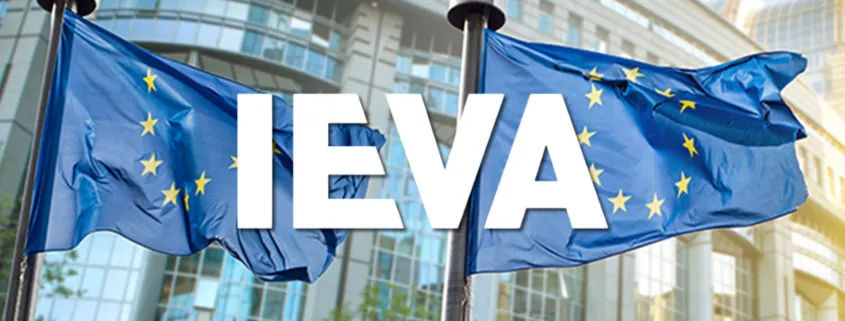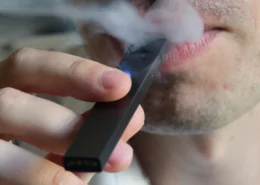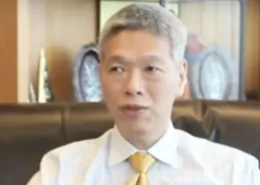IEVA Appeals to Polish Ministry of Finance Regarding Proposed Tax Changes on Vaping Products
The Independent European Vape Alliance (IEVA)1 and its members have expressed grave concerns over the draft amendment to the Excise Tax Act in Poland, currently under the supervision of the Ministry of Finance (UD105 and UD139). As the sole association representing manufacturers and distributors of vaporization products across Europe, IEVA aims to provide adult consumers with access to less harmful alternatives to traditional tobacco products.
IEVA actively monitors legal regulations in individual countries to ensure that the rules align with scientific evidence regarding public health improvement. The association has identified inconsistencies and economically harmful approaches in the proposed regulations by the Polish Ministry of Finance.
Vaping as a Less Harmful Alternative to Tobacco
Numerous scientific studies, including a report by Public Health England, have proven that e-cigarettes are 95% less harmful than traditional cigarettes2. These products help adult smokers combat addiction, as evidenced by research from the University of Oxford and other scientific sources3.
Vaping offers a solution to Poland’s high rate of tobacco smokers and its impact on public health. Independent and publicly funded studies highlight the harm reduction potential of vaping products. The European Parliament has recognized that “electronic cigarettes can enable some smokers to progressively quit smoking” in two separate reports on strengthening Europe’s fight against cancer (2022) and non-communicable diseases (2023)4.
Disproportionate Taxation on Vaping
The Ministry of Finance’s plan to tax e-liquids would result in a 327% increase in excise duty by 2027 compared to 2024. The proposed tax rate of 1.8 PLN/ml will be the highest excise tax on e-liquids among EU countries, making vaping extremely expensive for Polish smokers.
Additionally, imposing a 40 PLN (50 PLN with VAT) excise tax on vaporization devices and “double taxing” disposable e-cigarettes will further increase the cost of vaping products. Retail prices for devices will rise to 80 PLN, the highest in Europe, forcing Polish smokers to choose cheaper, more harmful tobacco products.
The government appears to base its decisions on erroneous assumptions, spreading misinformation and misleading the public. Instead of relying on solid scientific evidence, decision-makers perpetuate false information, such as claiming that the nicotine content in one e-cigarette equals two packs of traditional cigarettes.
Excise Stamps (Banderoles) and Liquidity – The Need for Clarity
Introducing a one-year validity period for banderoles will pose logistical and financial challenges for Polish entrepreneurs, particularly small and medium-sized enterprises (SMEs). Enforcing this requirement will threaten the business stability of many companies, and entrepreneurs may need to significantly increase their cash requirements to meet the new demands.
The Ministry of Finance’s proposal introduces changes to banderole regulations that are exceptionally difficult for Polish SMEs in the vaping industry to fulfill. Enforcing the one-year validity period for excise stamps on e-liquids will be impossible for SMEs to implement. Moreover, placing two different excise stamps on vaporization products sold with devices and e-liquids will be challenging, if not impossible, due to insufficient packaging space.
Failure to Consider the Real Situation of Entrepreneurs
Implementing new regulations requires considering the addressees’ capabilities, i.e., entrepreneurs in this case. The introduced regulations should allow for maintaining business liquidity, as financial stability ensures a company’s ability to continue operations and fulfill obligations.
To meet the new regulatory requirements, entrepreneurs will need to invest in risk management systems and modify their market strategies. Even if entrepreneurs decide to comply with the new regulations, there is a high probability that they will face liquidity problems. When attempting to introduce 100,000 products per month, with an excise tax rate of 40 PLN (50 PLN with VAT) on devices, they will need an additional 5 million PLN. With a 90-day payment term, the cash requirement will increase to 15 million PLN.
Insufficient financial liquidity can lead to payment delays, loss of trust from contractors and customers, and, in extreme cases, difficulties in maintaining operations. Therefore, it is crucial that new regulations are introduced with consideration for the real capabilities of enterprises, allowing them to smoothly adapt to changing conditions. This is also required by the principle of protecting citizens’ trust in the state and the law it establishes, which is a constitutional principle derived from the rule of a democratic state governed by law.
Conclusion
IEVA and its undersigned member representing national vaping industry associations appeal for reconsideration of the proposed changes, which may have catastrophic consequences for over a thousand Polish small and medium-sized enterprises. The association remains at the disposal of the authorities for any further inquiries.
Links:
- IEVA: https://eurovape.eu/ ↩︎
- E-cigarettes around 95% less harmful than tobacco estimates landmark review: https://www.gov.uk/government/news/e-cigarettes-around-95-less-harmful-than-tobacco-estimates-landmark-review ↩︎
- E-cigarettes are more effective than nicotine-replacement therapy in helping smokers quit: https://www.ox.ac.uk/news/2022-11-17-e-cigarettes-are-more-effective-nicotine-replacement- therapy-helping-smokers-quit ↩︎
- European Parliament resolution of 16 February 2022 on strengthening Europe in the fight against cancer: https://www.europarl.europa.eu/doceo/document/TA-9-2022-0038_EN.html ↩︎
- Bestselling Vapes in UK After Disposable Ban: What to Stock 2025 - August 8, 2025
- Argentina Debates Stricter Vape Laws Amid Prohibition Failures - August 8, 2025
- Nigeria Advocacy Group Urged to Hike Tobacco & Vape Tax by 100% - August 8, 2025








